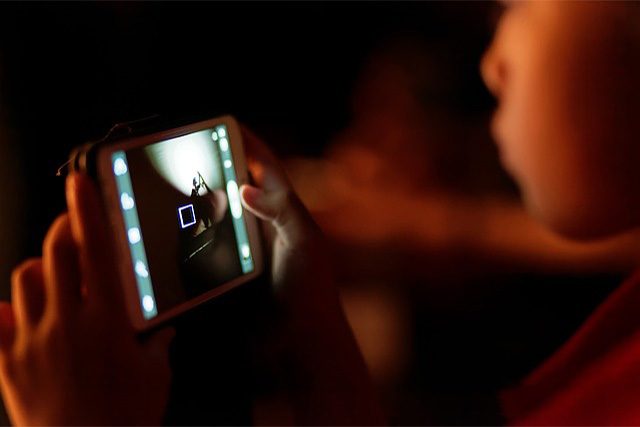Child neglect and poverty were perceived as the main factors why there is still prevailing online child abuse in the Philippines.
These woes were discussed on the subreddit Philippines after a screenshot of a tweet on child sex trafficking was shared on the platform.
The Twitter user raised concern over the alarming increase of Online Sexual Abuse and Exploitation of Children (OSAEC) cases in the country amid the pandemic.
A Reddit user re-posted this screenshot on June 22. The tweet stated that some international rights groups considered the Philippines as the go-to destination for OSAEC in the world.
“Philippines is number one go-to child porn destination and that’s sad,” the user said.
It was originally posted under the subreddit Feminism, an international forum for topics about equality for women.
The main tweet came from user @KharaJabola who shared a graph that showed the United States as the top country with the most OSAEC-related transactions and highest remittances worth P39.7 million.
“The Philippines was just named ‘global epicenter’ of livestream child sexual abuse. (heartbroken emoji) Its former colonizers US and Japan were top countries for most dollar spent on live child porn during COVID—causing a 265% increase in child sex trafficking in the Philippines. Sex buyers are a plague,” read the tweet.
The Philippines was just named ‘global epicenter’ of livestream child sexual abuse.💔 Its former colonizers US & Japan were top countries for most $ spent on live child porn during COVID— causing a 265% increase in child sex trafficking in the Philippines. Sex buyers are a plague pic.twitter.com/vXlj15idNg
— Khara Jabola-Carolus 🇵🇭 (@KharaJabola) June 10, 2021
In a report last May, the Philippine Center for Investigative Journalism titled “Digital Sex Crimes in Asia: The Filipino mothers selling their children for online sexual abuse” stated that the country was tagged as the “global epicenter of livestream sexual trafficking of children.”
PCIJ stated that this was based on data from the US-based National Center for Missing and Exploited Children (NCMEC) and the Philippine Internet Crimes against Children Center (PICACC) in 2019 and 2020.
Neglect, poverty, culture
In the discussion section, Reddit users lamented that perpetrators of some online abuse cases are the children’s family members, particularly mothers.
“Almost all of them the perpetrators are the mothers. So much for ‘ilaw ng tahanan,’” one user said.
“This is an act of sad reality with their neglected parents selling out the children of the future by selling their bodies to the hands of abusers, predators, and traffickers with putting a much suffering that it’s still not yet eradicated,” another user said.
One user noted that some families in the urban poor are not educated enough to discern pedophilia.
“Actually hindi uso satin ang term na pedophile, kasi nagjojowaan sila, and kung hindi papansinin, o hahayaan kasi ‘may kaya’ nman yung nasa tamang edad, it is not considered being pedo sa mata ng Pinoy. Kapag nagsabi ka na hindi tama yan, ikaw pa masama,” the user wrote.
Alarming numbers
In its report, PCIJ reported that tech companies found an alarming over 1.29 million images and videos of child abuse materials that came from the country last year.
Citing data from the Department of Justice, there were 202,605 cases of OSEC from March 1 to May 24, 2020, which was the first months when the tough lockdowns were implemented.
This is a 265% increase from the same period in 2019.
Facebook also found 279,166 images of child sexual abuse and similar content on its platform within the same months in 2020.
DOJ Undersecretary Emmeline Villar last year told Thomson Reuters Foundation that the loss of income from the shutdown of businesses due to the pandemic contributed to this situation.
“Now that people are required to stay at home, many suffer from a loss of income from the shutdown. (This) makes it more likely that the traffickers will engage in abusive behavior,” Villar said.
READ: Online child sex abuse cases triple under lockdown in Philippines
Last March, Sen. Risa Hontiveros, who is also a human rights activist, filed the Senate Bill No. 2068 or the Anti-Online Sexual Abuse and Exploitation of Children Law before the Senate “to strengthen the protection of children against online sexual abuse and exploitation.”
As of writing, the proposed measure has yet to be signed into law.










